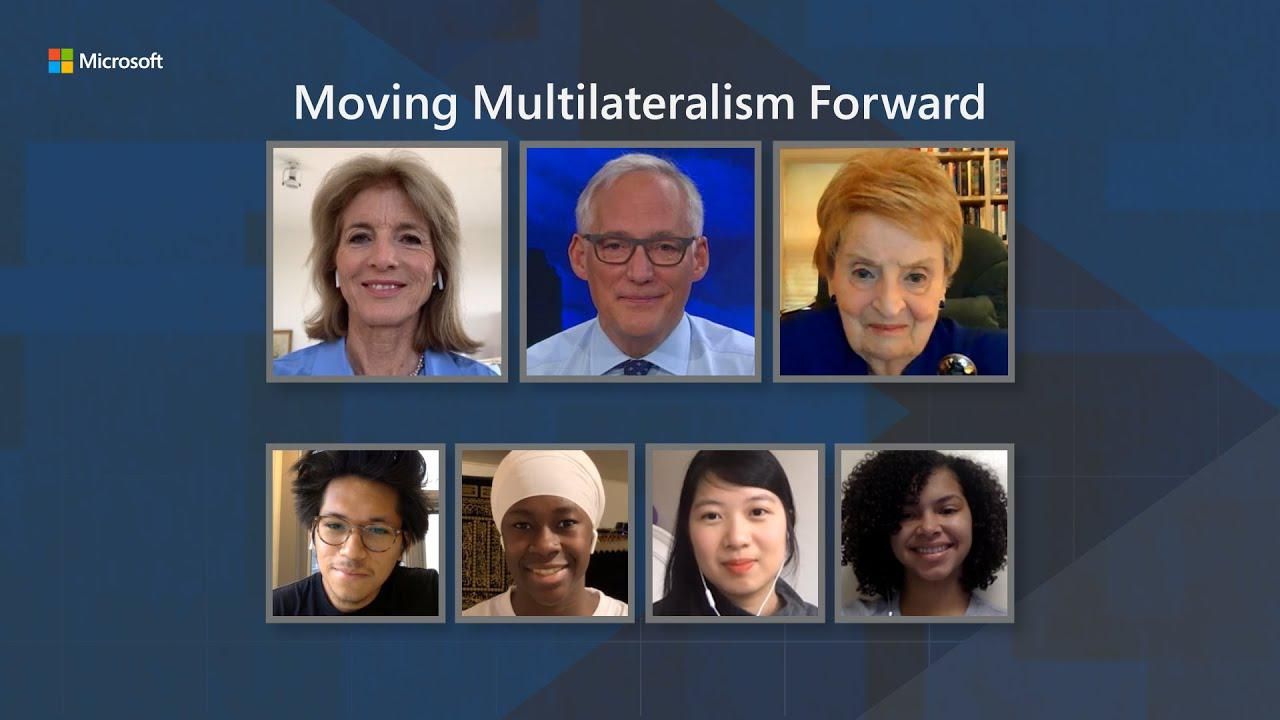Posts
Moving Multilateralism Forward: Madeleine Albright, Caroline Kennedy, and John Frank discuss

Moving Multilateralism Forward: Full video

Watch: "Moving Multilateralism Forward," an intergenerational dialogue between Madeleine Albright, former US Secretary of State; Caroline Kennedy, former US Ambassador to Japan; John Frank, Microsoft Vice President of UN Affairs; and four current and former students of the Marble Hill School for International Studies in the Bronx, NY. These veteran diplomats and young minds discuss the future of multilateralism, the unprecedented challenges facing the international community, the power of young people in leading change, and the promise that technology has to be a force for good.
During the UN's 75th year, the conversation reminds us that inclusive multilateralism must involve diverse stakeholders across the international system – and most importantly across generations – and that young people are optimistic about our future, understand the value of multilateral institutions, and want to be involved in achieving a better world.
Watch the full video above, and the teaser here:
This content is brought to you by GZERO Media's 2020 UN General Assembly partner, Microsoft.
For China, hitting its annual growth target is as much a political victory as an economic one. It is proof that Beijing can weather slowing global demand, a slumping housing sector, and mounting pressure from Washington.
30,000: The estimated death toll in Iran during the protests at the start of the year, per local health officials, underscoring the scale of the Islamic Republic’s crackdown on its own citizens.
Seventy-eight years after helping found the World Health Organization (WHO), the United States has formally withdrawn from the agency, following through on a pledge President Donald Trump made on his first day back in office.
Mastercard Economic Institute's Outlook 2026 explores the forces redefining global business. Tariffs, technology, and transformation define an adaptive economy for the year ahead. Expect moderate growth amid easing inflation, evolving fiscal policies, and rapid AI adoption, driving productivity. Digital transformation for SMEs and shifts in trade and consumer behavior will shape strategies worldwide. Stay ahead with insights to help navigate complexity and seize emerging opportunities. Learn more here.